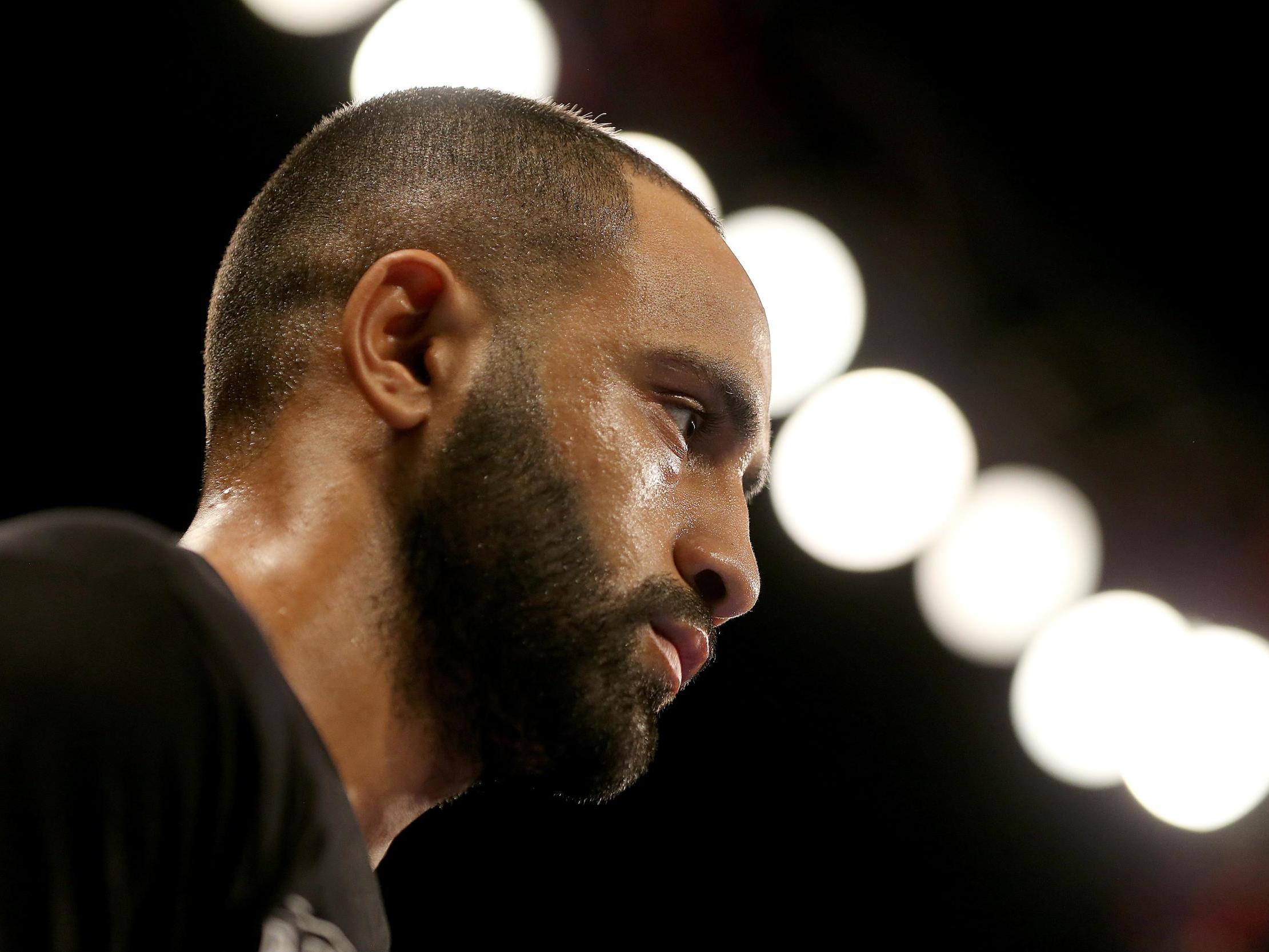‘It is written’: The making of Kid Galahad and his rise to the top
From Liverpool to Sheffield to Yemen, this is the story behind the boxer previously known as Abdul Awad and the people who made him

Your support helps us to tell the story
From reproductive rights to climate change to Big Tech, The Independent is on the ground when the story is developing. Whether it's investigating the financials of Elon Musk's pro-Trump PAC or producing our latest documentary, 'The A Word', which shines a light on the American women fighting for reproductive rights, we know how important it is to parse out the facts from the messaging.
At such a critical moment in US history, we need reporters on the ground. Your donation allows us to keep sending journalists to speak to both sides of the story.
The Independent is trusted by Americans across the entire political spectrum. And unlike many other quality news outlets, we choose not to lock Americans out of our reporting and analysis with paywalls. We believe quality journalism should be available to everyone, paid for by those who can afford it.
Your support makes all the difference.He was just Abdul Awad when he lived with eight members of his extended family above the Mr. Mohammed General Store in Liverpool. It’s still there, it’s where the tourists stop for water after a quick picture outside Ringo Starr’s old home.
He was six when he watched Naseem Hamed win the IBF featherweight world title in early February 1997 at the now demolished London Arena. “All the Arabs watched Naz,” he remembered. Awad and Hamed both had parents from the Yemen, both lived in crowded rooms, packed with bunk beds and kids above corner shops.
When he was 12 his family moved to Sheffield, to one of the anonymous but dangerous estates that ring the hills of the city; it was the type of place where it is impossible for a whole family to avoid the troubles that suck the life and dreams from people. It was at a mosque shortly after the move that he met his hero, Hamed. And Hamed was a hero. I went with Hamed to Yemen once, a glorious homecoming for the little idol. One afternoon our Mercedes was overwhelmed by fans at the imposing gates of the ancient suq and swept away for fifty feet by people, moving like a flip-flop in the surf. It was stopped only when our armed guard emptied his ancient Colt into the sky.
Awad wanted to box. Hamed told him about the great whispering guru, Brendan Ingle, and his near mythical gym of boxing miracles in the Wincobank area of the city. Awad made the trip, met Ingle and his life transformed like so many lost souls that tumble through the doors and leave a better person. Ingle could not save everybody, but he tried. If he couldn’t save a fighter, he would go to court and offer witness. If that failed, he would take some fighters inside prison to see his latest felon. He never stopped trying and Awad was one of his last projects. Brendan kept Awad in the ring and far from prison.
By the time Awad was 15 he had quit school, was banned from local transport and was sharing a house with other Ingle fighting men in Newman Road, near the gym – it is the same road Hamed had lived on. Awad was following a path; “Maktub,” he would keep saying. It was written. Both Yemenis, both lived above a corner shop, both lived on Newman Road. Maktub.
Awad is now Kid Galahad, given the grand sobriquet by Brendan and following a familiar path of renamed brawlers: Paddy O’Reilly was a black heavyweight from Derby, Tony Montana was a refuge from Kosovo and, perhaps strangest of all, Slugger O’Toole, a super-middleweight from Nottingham, whose real name was Fidel Castro Smith. The Kid fit right in.
As a professional boxer Kid Galahad is unbeaten in 26 fights and is now 28. He was banned for two years in 2015 when he failed a routine post-fight drug test: it was reduced by six months on appeal. He never admitted guilt and still insists his brother, who had recently been released from prison, added the substance to his recovery shake because Galahad had refused to give him some cash. Family life, estate life, fame and disaster all mixed the night he so nearly drank away his career, but Galahad stayed in the gym and kept on winning.
He now has his own house on Newman Road, part of a boxing colony persuaded by Ingle during the last thirty years to turn their fight money into something more solid and profitable than a dozen ring memories and the distant cry of fans. Last year Billy Joe Saunders lived in Galahad’s attic.
Last week it was announced that Galahad would fight Josh Warrington for the IBF featherweight title. It is Hamed’s old belt. Maktub, again. Warrington and Galahad both turned professional in 2009, just days separating their debuts; they both beat Delroy Spencer in their first fight: That’s right, it was written.
Brendan Ingle died last year and Kid Galahad was a pallbearer. When Ingle’s special trunk of boxing memorabilia, a collection of eclectic trinkets from a life in the dirty old game, was opened there was a training t-shirt from the Tom Johnson and Naseem Hamed fight. Ingle was not a hoarder and only kept things with a special meaning, items that would be relevant. It was given to Kid Galahad and six months later the Warrington fight was announced. Maktub.
Join our commenting forum
Join thought-provoking conversations, follow other Independent readers and see their replies
0Comments